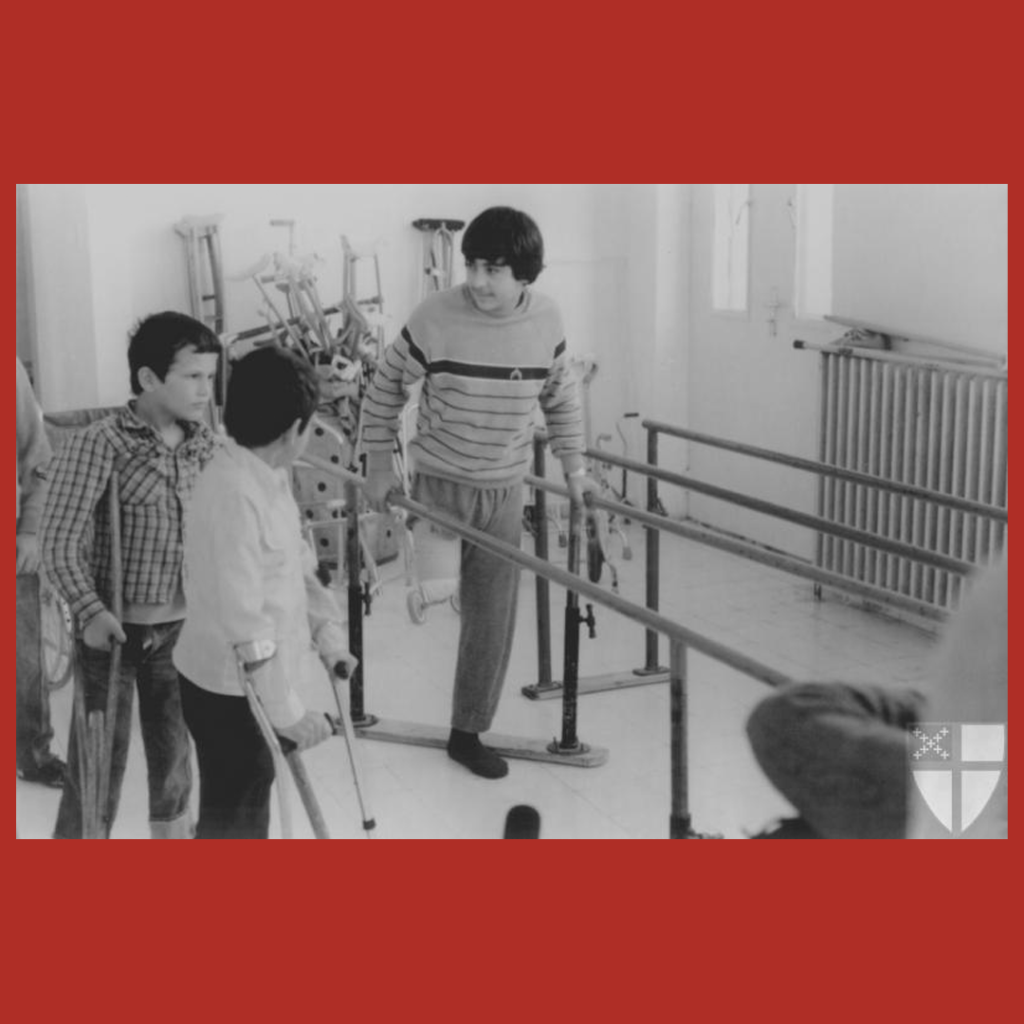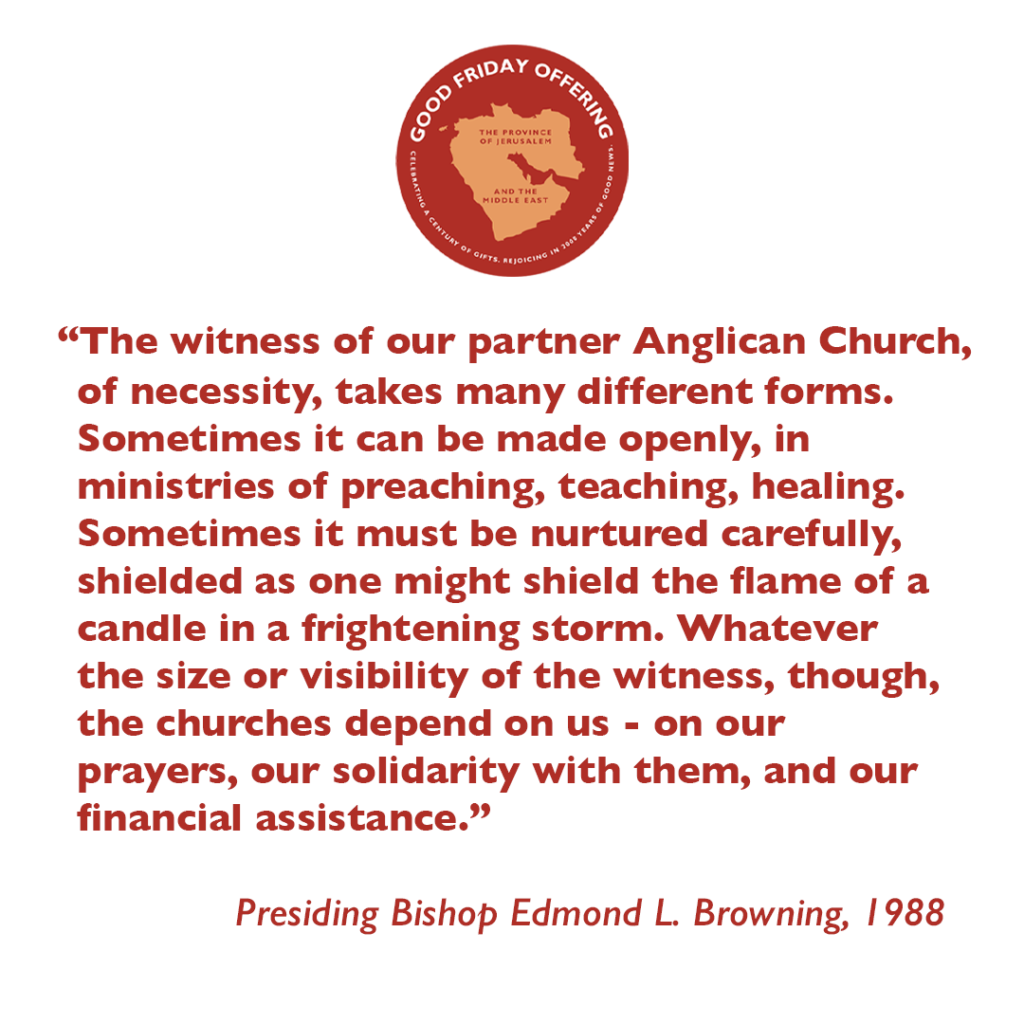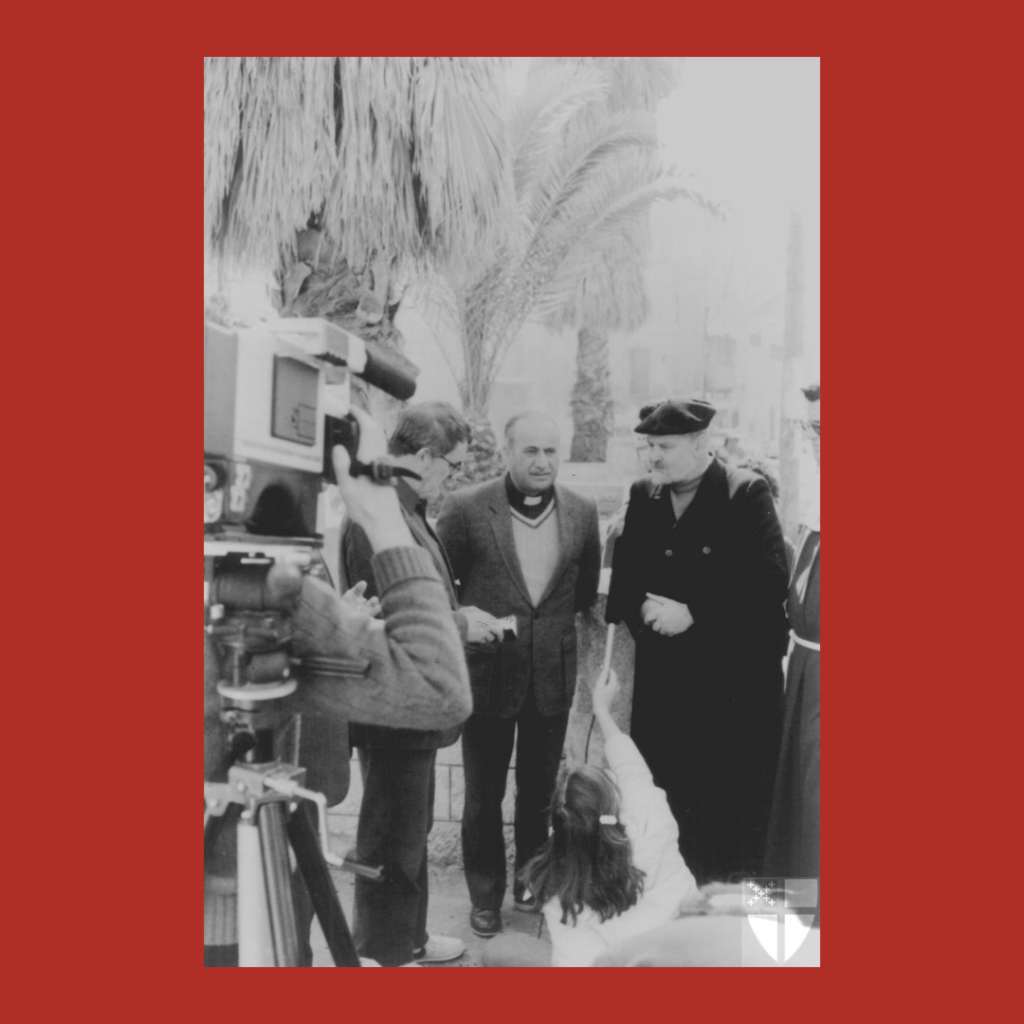The Good Friday Offering: 1982-1992
The seventh decade of the Good Friday Offering had an inauspicious beginning with a major recession beginning in the United States. The decade was plagued by incidents of violence and terrorism around the world; in 1983 a suicide bomber detonated a truck bomb that killed 307 people, including 241 Americans, at a U.S. Marines barracks in Beirut, Lebanon. In 1984, widespread drought and famine in Ethiopia showed the world painful and heartbreaking images of starvation. The nation was stunned and shaken in 1986 when the Challenger space shuttle exploded shortly after takeoff. The shuttle’s crew included Christa McAuliffe, a teacher who would have been the first civilian in space. Nearly 1 in 5 Americans watched the event live, including legions of schoolchildren. 1987 saw the first episode of The Simpsons and the development of a new drug, AZT, used for the treatment of AIDS. After a prolonged period of growth, the US stock market dropped more than 20% in one day in October.

Closer to the Episcopal world, a ground-breaking event occurred in in 1988 when the Rev. Barbara Clementine Harris was elected suffragan bishop of the Episcopal Diocese of Massachusetts. She would be consecrated the first female bishop in the Anglican Communion on February 11, 1989. Symbolically, the year of her consecration coincided with the collapse of the Berlin Wall the end of the (too-short-lived) political division between the East and the West, the United States and the Soviet Union. Two of the most famous presidential speeches of the Cold War— Kennedy’s “Ich bin ein Berliner” and Reagan’s “Tear Down This Wall” were made there. A new freedom waas experienced when “the walls came a-tumbling down,” so to speak.
Still, turmoil would continue in the Middle East; the Gulf War dominated much of the news for a seven-month period from August 1990 to February 1991 as coalition forces from 35 nations led by the United States fought against the Iraqi invasion of Kuwait. Like so many of the traumatic and life-changing events of the era, live news broadcasts brought the conflicts in living color into the home.
Knowing the precarity of Anglican institutions in the region – but also acknowledging their great dedication – the Rt. Rev. G. Edward Haynsworth, executive for World Mission at the Episcopal Church Center, wrote to bishops of The Episcopal Church: “The Good Friday Offering is the life blood of many of the institutions of the Episcopal Church in Jerusalem and the Middle East.” In another letter to the members of The Episcopal Church, Presiding Bishop John M. Allin wrote, “Unfortunately, the land of our Lord is still a place of war, distrust, conflict, suffering and death. The work of the Church continues in spite of overwhelming difficulties. The witness and courage of this small church is a challenge to all of us,” adding, “The ministry among refugees, displaced persons and orphans must go on if the Church is going to be faithful to its pastoral calling.”

And so, while in 1985, the theme of the Good Friday Offering was “The Good Shepherd, who gives his life for the sheep,” which focused on the mission and ministry of the Episcopal Church in Jerusalem and the Middle East, the church would become more explicit the next year about the implications of the Good Shepherd’s call. In 1986, the plight of refugees, the displaced, the orphaned – all victims of war and other tragedies in the Middle East – were the focal point of the year’s Good Friday Offering. “The Episcopal Church in Jerusalem and the Middle East plays a leading role in that community,” said Presiding Bishop Edmond L. Browning. “It has been assisting the growing number of displaced persons through a wide range of service institutions… If the work is to continue – and it must continue – we must offer our prayers and support at this time of need.” Later in the decade, Presiding Bishop Browning asked that all Episcopalians, as part of their observance of Lent, give special consideration to their sisters and brothers in the Holy Land, in witness to the extraordinary courage and faith of Anglicans in that troubled region of the world.
In 1988, the Good Friday Offering sent $178,000 to Jerusalem and the Middle East, an increase of $40,000 over the previous year’s efforts. The money was shared by the Dioceses of Jerusalem, Egypt, Iran, and Cyprus and the Gulf, which together comprised a single province of the Anglican Communion. The Presiding Bishop, in his Good Friday letter to the parishes, said of the Church in Jerusalem and the Middle East, “The witness of our partner Anglican Church, of necessity, takes many different forms. Sometimes it can be made openly, in ministries of preaching, teaching, healing. Sometimes it must be nurtured carefully, shielded as one might shield the flame of a candle in a frightening storm. Whatever the size or visibility of the witness, though, the churches depend on us — on our prayers, our solidarity with them, and our financial assistance.”

The Rt. Rev. Samir Kafity, Bishop of Jerusalem and President Bishop of the Province expressed his thanks for the 1989 Good Friday Offering, which he considerd essential to the ministry of his Church in the Middle East: “It is indeed a wonderful expression of the concern felt by our brothers and sisters for our situation in the Province. Their kindness and love is so much appreciated and truly a reflection of our Lord’s love in action among us… These actions witness to healing, reconciliation, justice, and peace. These actions are a witness, a testimony, that can be seen by the naked eye. These actions are the testimonies of the people of God, who are the object of the prayers and Good Friday offerings of the faithful of The Episcopal Church in the United States.”
Growing awareness of the plight of Christians and so many others in the Middle East inspired the Good Friday Offering to “wage peace.” The Offering was transformed into a more urgent appeal, in light of the Gulf War; for the first time, the ministry raised $190,000 for the four dioceses of the Anglican province there.
Please join us in celebrating a century of gifts and rejoicing in 2,000 years of Good News. Give now at iam.ec/goodfridayoffering or text ‘GFO’ to 91999 (messaging and data rates apply).


